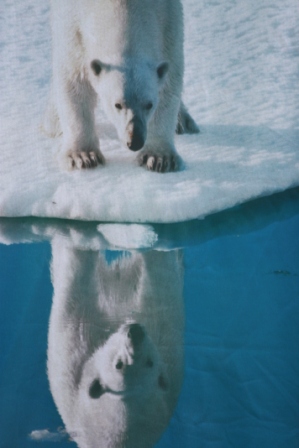Greenpeace: Pirates, Hooligans – what next?
If it didn’t involve thirty committed conservationists being imprisoned and intimidated, I might be inclined to see the Russian authorities’ behaviour as something of a farce. Russia has now dropped allegations of piracy, but accused the activists of hooliganism, which still carries a long jail sentence. Pirates? Hooligans? What will they come up with next in their effort to keep the crew of the Arctic Sunrise in jail and hammer home the message that Russia takes its Arctic interests very seriously? The absurdity of the charges against protesters on behalf of an organisation famous for its often spectacular but always unarmed and peaceful demonstrations in the cause of environmental protection tells us a lot about Russia’s attitude towards the Arctic. “Russia takes on Greenpeace – and stakes its claim to the Arctic” is the headline of an article by Simon Shuster for Time World , which suggests Greenpeace met with the disproportionately harsh response because the Arctic oil rig protest came at a time when Russia was asserting its military presence in the Arctic – against a background of growing economic interest. Moscow has opened its first permanent military base in the Arctic since the fall of the Soviet Union. The Greenpeace stunt “gave Russia just the opportunity it needed to underscore the message of Admiral Kololyov (commander of Russia’s northern fleet): Do not tread on the Russian north”, Shuster writes. Indeed.
Shuster quotes Vladimir Chuprov, head of Greenpeace Russia, as admitting the timing of the protest “may have been inopportune”. Greenpeace chief Kumi Naidoo, who was personally involved in a similar protest last year, has stressed the organisation did not expect such a harsh response.There are those who criticize Greenpeace for staging the protest. Greenpeace critic Mika Mered, CEO of Polaris Consulting, writes in a commentary for the Arctic Journal Moscow’s reaction was “perfectly predictable”. Whether it was predictable or not – the treatment of the activists is drawing massive attention to what is happening in the High North. The race is in full swing for access to the Arctic’s resources. Research into the environmental impacts of oil and gas drilling and transport on the fragile Arctic eco-system and the development of technology to cope with a possible oil spill in icy waters are struggling to keep pace with the rapidity of commercial development. The Russian reaction to the Greenpeace protest has drawn widespread media and public attention to the rapidly growing international economic and political interest in the Arctic. More than any scaling of an oil rig alone could ever have done. And in the run-up to the next round of UN climate talks in Poland next month, let us not forget that it is climate change, caused to a large extent by the burning of fossil fuels, that is making the race for Arctic oil and gas possible.(No wonder UN Climate Chief Christina Figueras was reduced to tears by the lack of inaction on climate the other day).
Meanwhile, on a more positive note, a survey conducted by the Kremlin-backed Public Opinion Foundation on October 13th showed that 69 percent of Russians favour making the Arctic region a neutral zone – outside the control of sovereign states. See Moscow Times.
Also worth reading: “High North or High Tension”by retired US Navy Admiral James Stavridis in Foreign Policy.com. If we want to keep the peace in the Arctic, he says, “we have some work to do”.
















